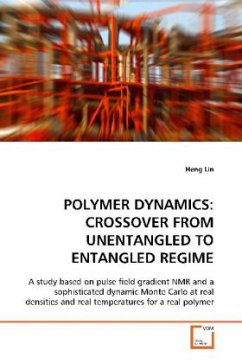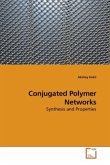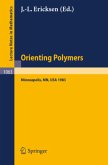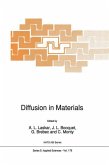A dynamic Monte Carlo algorithm has been designed to
reflect the true randomness of local molecular
torsion movements. Combined with NMR experiments,
our study confirmed there were finite chain length
effects. The reptation-like slowdown can be clearly
observed when M is above 2400. A bimodal mixture of
PE with one entangled component and one unentangled
component has also been studied. Good agreements
have been reached when Hess theory and Pearson-von
Meerwall model were used to fit our data. Additional
bimodal mixtures of PE studied by us involved a
small amount of short N-alkane in an entangled PE
matrix. The commonly seen excessive M dependence of
diffusion coefficients of short polymer chains
results from two contributions. One is due to the
non-iso-friction environment. Another one, having
much less to do with the environment, is still
mysterious. It may link to the non-Gaussian
statistics of the short polymer chain itself.
reflect the true randomness of local molecular
torsion movements. Combined with NMR experiments,
our study confirmed there were finite chain length
effects. The reptation-like slowdown can be clearly
observed when M is above 2400. A bimodal mixture of
PE with one entangled component and one unentangled
component has also been studied. Good agreements
have been reached when Hess theory and Pearson-von
Meerwall model were used to fit our data. Additional
bimodal mixtures of PE studied by us involved a
small amount of short N-alkane in an entangled PE
matrix. The commonly seen excessive M dependence of
diffusion coefficients of short polymer chains
results from two contributions. One is due to the
non-iso-friction environment. Another one, having
much less to do with the environment, is still
mysterious. It may link to the non-Gaussian
statistics of the short polymer chain itself.








